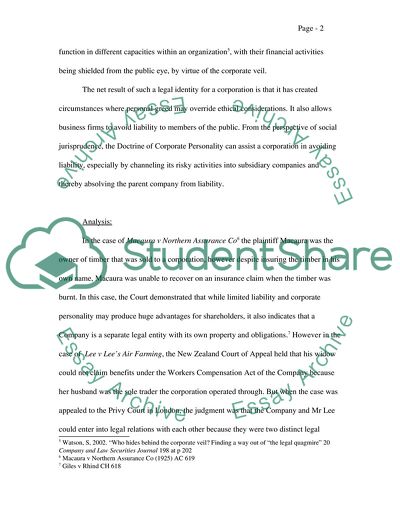Cite this document
(The Essence of the Doctrine of Corporate Personality Case Study - 2, n.d.)
The Essence of the Doctrine of Corporate Personality Case Study - 2. Retrieved from https://studentshare.org/law/1710331-company-law
The Essence of the Doctrine of Corporate Personality Case Study - 2. Retrieved from https://studentshare.org/law/1710331-company-law
(The Essence of the Doctrine of Corporate Personality Case Study - 2)
The Essence of the Doctrine of Corporate Personality Case Study - 2. https://studentshare.org/law/1710331-company-law.
The Essence of the Doctrine of Corporate Personality Case Study - 2. https://studentshare.org/law/1710331-company-law.
“The Essence of the Doctrine of Corporate Personality Case Study - 2”, n.d. https://studentshare.org/law/1710331-company-law.


